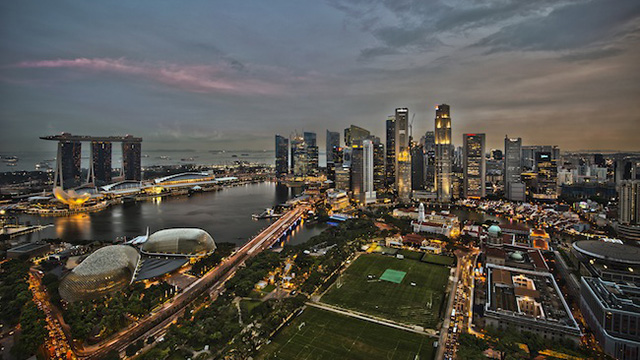
At least 2,000 Singaporeans chanted "we want change" and endured heavy downpours on Saturday, February 16, to reject government immigration proposals, in a rare demonstration in the tightly controlled city-state of 5.3 million people.
Although low by global standards the turnout was the largest in some years in Singapore, where the People's Action Party (PAP) has traditionally responded to any dissent with a firm hand, and provides the government with much to consider.
"I think that gradually the anti-PAP sentiment will build and spread unless there's a very fundamental change in the way the PAP deals with the people, which I don't see happening," political analyst Seah Chiang Nee told AFP.
"I think there's going to be a further decline in the popularity of the PAP between now and 2016," added Seah, who runs the political website www.littlespeck.com, referring to the next general elections.
For most people at the rally, held at a designated free-speech corner after a Facebook campaign, it was their first time waving placards and chanting slogans against the PAP, which has ruled Singapore for almost 54 years.
Eugene Tan, an assistant law professor at the Singapore Management University, said the high turnout showed "we now have a more contested political landscape and the PAP will have to deal with a more vocal electorate".
The PAP, long used to winning districts uncontested, has seen its support slide since a general election in May 2011 when it recorded is lowest ever share of the vote at 60 percent and the opposition won an unprecedented six parliamentary seats.
Since then, the PAP has lost two by-elections, although it still controls 80 of the 87 seats in parliament.
"PAP leaders seem to have lost their feel of the ground. Their technocratic decision-making style is no longer accepted, yet they persist in 'we know best' policies," said Reuben Wong, associate professor of political science at the National University of Singapore.
Saturday's protesters were rallying against government projections that the population could rise by a third to almost seven million in less than 20 years, with much of the increase resulting from immigration.
For years, the affluent but worker-starved city-state, built by mainly Chinese immigrants, had rolled out the welcome mat for foreigners, whose numbers rose drastically during the economic boom from 2004-2007.
Businesses hired construction workers from Bangladesh, hotel staff from the Philippines, waitresses from China, shipyard welders from Myanmar, technology professionals from India and bankers from the west.
Foreigners currently make up 38 percent of the population and the low Singapore birth rate means immigrants and guest workers will need to fill the manpower gap, raising that figure to 45 percent.
However, anger over the projections is causing Singaporeans to engage in something new -- speaking out against the PAP in public and not just in social media
"I'm thinking about my children, who are going to have a big problem studying in a competitive society next time," tax consultant Kevin Foo, 42, told AFP at the rally.
"Foreigners are going to create a lot of problems here, especially the rich ones who buy up all our property. Where are Singaporeans going to live?"-Rappler (February 17, 2013 3:02PM)

No comments:
Post a Comment